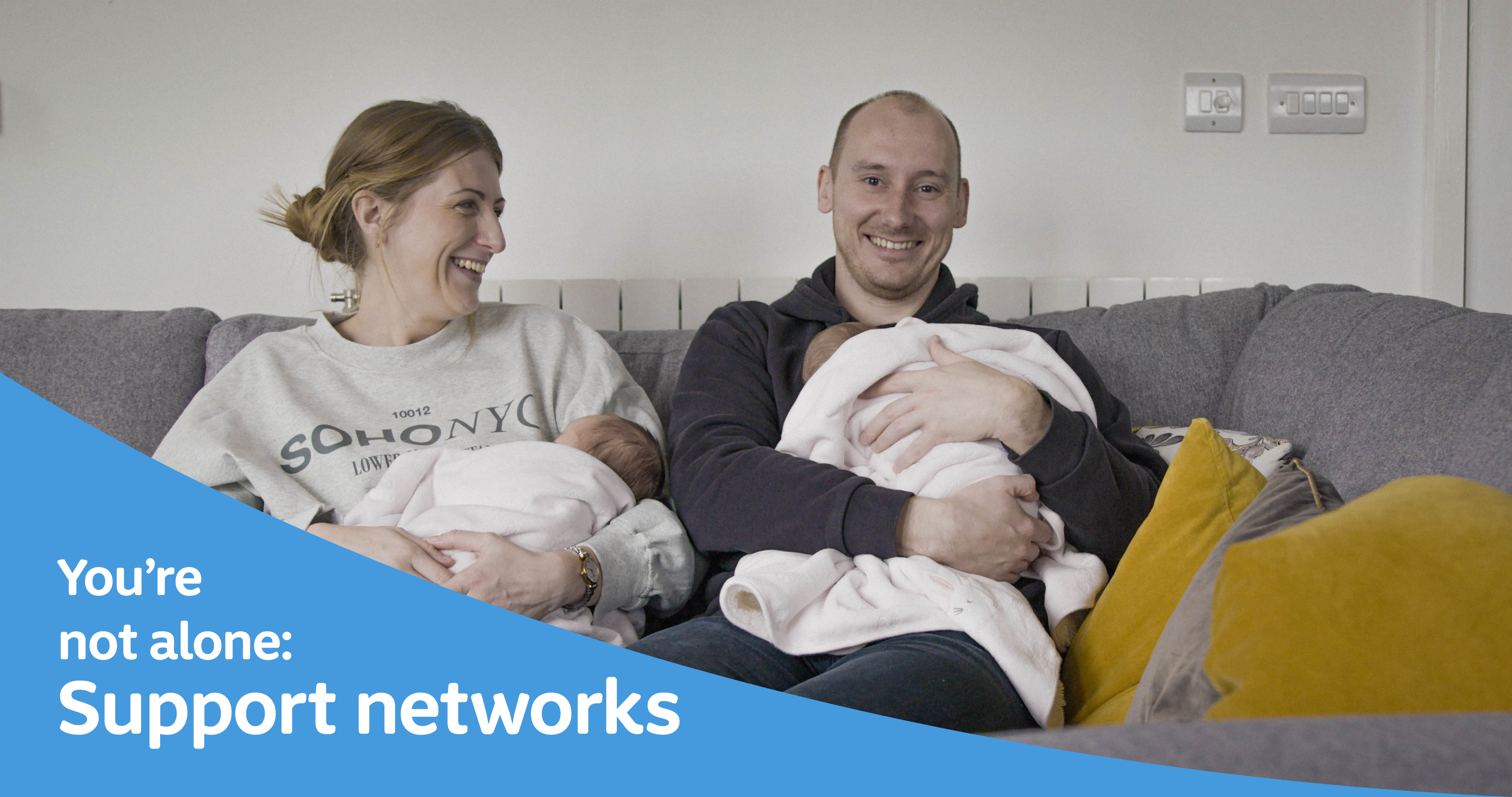Advice for new parents

Parenting is a unique and challenging journey, especially in a world that’s always evolving. What was once thought to be traditional and acceptable advice for new parents as little as 10 years ago has now become old news.
As a 21st century parent, adapting to these challenges can, at times, feel overwhelming. Whether you’re a new parent or have done it all before, it’s still possible to succumb to the early pressures of parenting. These can include:
Fatigue: Becoming a parent is a full-time job. From spending sleepless nights cuddling the baby to taking a break in your career, these sudden changes can take a toll on your mental and physical health.
Loneliness and isolation: Parenting can sometimes be very lonely and isolating, especially if you don’t have a strong support system around you.
Feeling overwhelmed: You’re taking care of another human being that’s entirely dependent on you, and the strains of that responsibility can sometimes feel overwhelming.
Not knowing what’s right for the baby: With so much news and advice out there on support for new parents, it can be difficult to know what’s useful or misleading.
It’s our goal to inspire you to embrace the role of parenting through essential tips and real-life parenting examples. Here, we’ll cover:
Eye-opening videos from real families on new-born parenting.
Support for new parents from unbiased and inclusive organisations.
Advice for new parents
Taking your new bundle of joy back home is one of the most exciting, life-changing experiences. But the first few months or even years of parenting can also be stressful and exhausting. To help make the transition to full-time parenting easier, we’ve compiled a list of important advice for new parents.
Be open and talk about your feelings
Don’t be afraid to speak up about any feelings of fear, anxiety, and doubt you have as a new parent, even if this isn’t the first child you’ve had. Expressing your doubt doesn’t mean that you’re a bad parent. On the contrary, it can help you get the support that you need.
Get help through a healthy support network
New parents who don’t get enough help in the early stages might feel overwhelmed by the sudden shift in lifestyle. For mothers, this can increase their risk of developing post-partum depression.
Don’t be afraid to ask for support from friends and family. Your loved ones can help you adjust to the stressful challenges of living with a baby. Whether it’s accepting food and clothes or offers of baby-sitting, this help can lessen the workload for new parents. If you don’t have a support network on hand, there’s often plenty of baby groups and classes hosted locally to help you create one. You can also reach out to a doula (someone who supports women through pregnancy and motherhood) for support.
Accept that you’re not going to be perfect
The first few weeks as new-born parents can be an emotional rollercoaster, so go easy on yourselves. Learn to be extra forgiving to you and your partner if they make mistakes, or if the house isn’t as spick and span as it used to be, or the dishes have piled up. Accept that sometimes, there’ll be cravings, mood swings, tons of laundry, and late-night shifts – but this is only normal, and for the most part, temporary.
Be mindful of your health
For new-born mothers, health is extremely important and plays a huge role in influencing how you’ll respond to the first few weeks and months of parenting. We highly recommend following up on any conditions that you had before and during your pregnancy (for example, diabetes, high blood pressure, etc.).
Avoid the pressures of losing all that baby weight, and instead, focus on good nutrition. Eat healthy and try to get enough sleep to regain your strength. Partners should also prioritise their health. By doing so, they can more effectively take on their new role as a parent and offer better support to their other half.
Try to get enough rest
Sleep deprivation is one of the biggest problems that new parents face. Not only does it affect mood, concentration, and memory, but it also makes you more prone to illness.
The most common mistake that new parents make is getting up together whenever the baby awakens. Instead, take turns/shifts and go to a different part of the house with the baby when they start crying. This way, one parent can enjoy some one-on-one bonding time with the baby, while the other gets some much-needed rest. In single parent households, understandably, splitting bedtime shifts may not be possible. However, parents are advised to take naps when their baby does and encouraged to make use of their support system if possible.
Find ways to manage stress
While most parents might be hesitant to leave their new-born with friends or family, spending quality time away from your child is important. This gives you space to reconnect with your hobbies. This could be going to the gym, reading a book, or anything that centres you and gives you time to breath and relax. It’s important to spend at least a few hours every week away from changing diapers and release some of the stress that comes with caring for another human being.
Take it one day at a time
Whether at family gatherings or friendly meet-ups, you rarely fail to hear someone exclaiming how fast so-and-so’s child has grown. Remember that your newborn will only be a baby for a few years. So, appreciate the joy and excitement of having a little one cooing in their cradle. Time goes by fast.
Make time for your partner
This is key to maintaining a healthy relationship and creating a stable, happy environment for your child to flourish in. If you have a partner, don’t neglect them. Make time to listen and communicate with them. You can even get someone from your support network to babysit so you can plan a nice date night away or even something as simple as an intimate walk. Spending time with your partner not only improves your mental and physical health, but also strengthens the bond you have.
Maintain a social life
Spending time with your friends, or other parents who understand what you’re going through, can bring some added joy and cheer to your life. Whether it’s making time for brunch, yoga classes, or even organising a visit, this support can do wonders for your mental health.
Don’t panic
New parents can sometimes become overly anxious when caring for their child. While it’s important to stay vigilant and monitor symptoms of sickness, like fever or a rash, remember that babies are resilient.
In fact, babies can pick up on anxiety from their parents and this can make them uncomfortable. There’s nothing wrong with being careful when it comes to your baby but try not to sweat the small stuff. Panicking will only escalate your stress and that of the baby.
Where to find further support for new parents
Looking for professional support as a new parent? These organisations provide unbiased, non-judgemental support for parents looking to better understand and overcome the challenges of parenthood.
